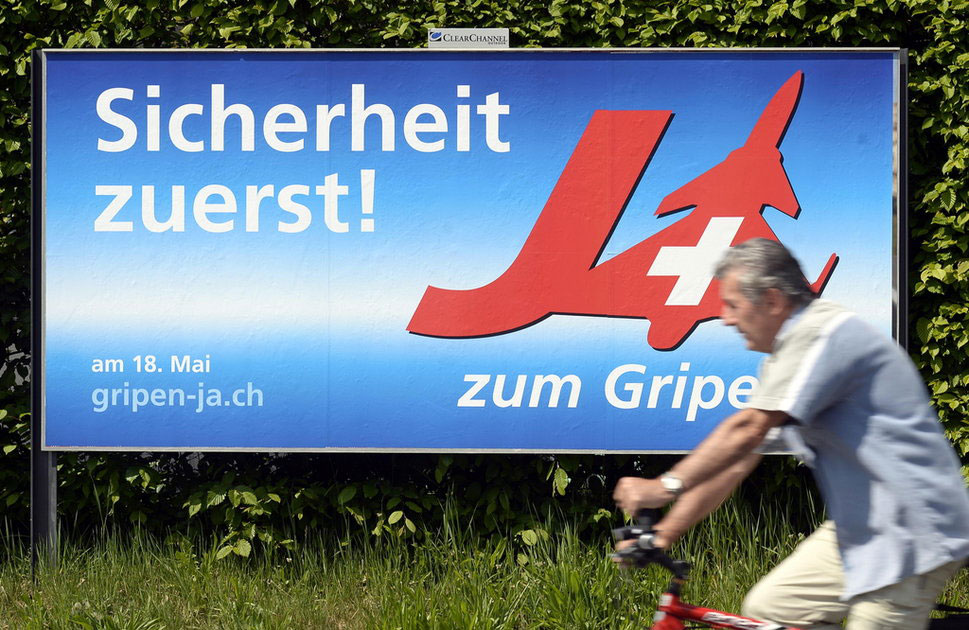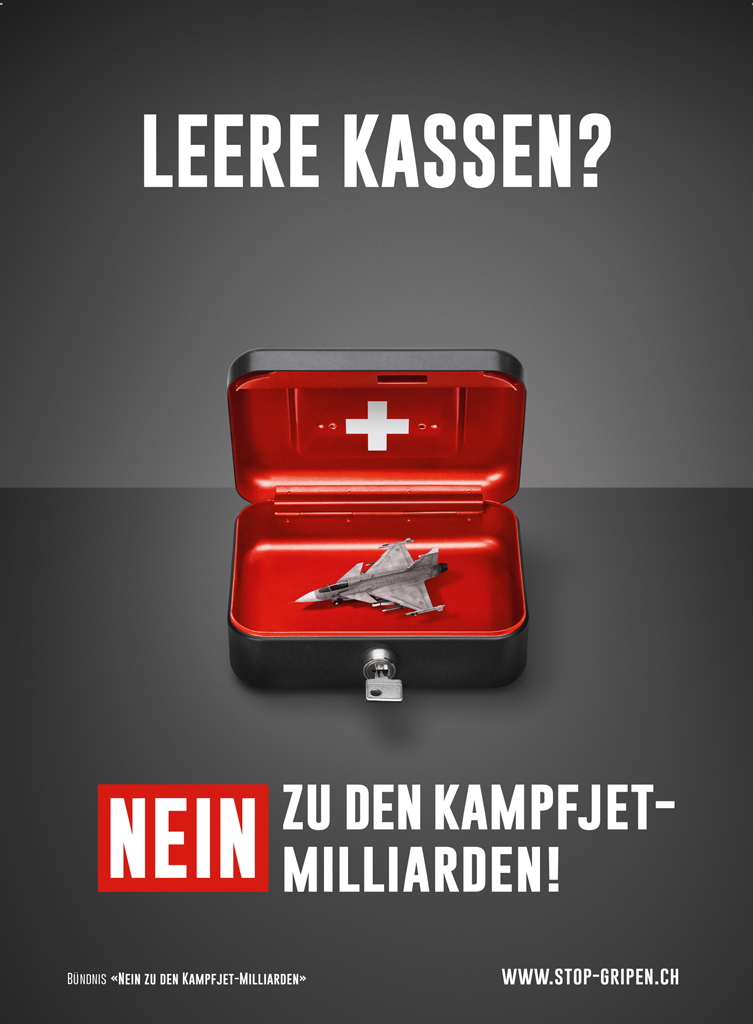
Many European governments have used the situation in the Ukraine as justification to increase military spending. But only in Switzerland do people have a direct say in their country’s military policy. And the signal that the Swiss people sent out last Sunday was very clear: Buying expensive weapons systems is not a priority.
In a national referendum, 53.4% of the voters rejected the purchase of 22 Swedish JAS Gripen E fighter jets. The deal was worth £2 billion immediately and £6.6 billion including operations and maintenance over the next few years. The government had proposed the procurement to replace the ageing F-5 Tiger fleet that will be put out of operation next year.
Sunday’s vote is remarkable for several reasons:
- Traditionally, Swiss voters are mostly military-friendly. As recently as last September, they rejected a proposal to abolish general conscription with a 73% majority, leaving Switzerland as one of the last countries in Europe with compulsory military service.
- The campaign in favour of the new fighter jets had at least ten times as much financial means as the opponents. You couldn’t read a newspaper or walk a street without seeing advertisements for the procurement during the last few weeks. Many of the ads tried to invoke a feeling of insecurity by linking the Ukraine crisis to the proposed deal.
- The government, both chambers of parliament and all major right-wing and liberal parties had recommended buying the jets.
Our formula for success was to focus entirely on the voters on the centre of the political spectrum. We knew that we didn’t need to convince pacifists and the left, because they would vote against the new fighter jets anyway.
Main arguments of the No campaign
The key was to be very strategic in the choice of the arguments we used. We are convinced that there is no military threat to Switzerland neither now nor will there be such a threat in the foreseeable future. We know that the challenges to our country are of civilian nature and cannot be solved with arms. But we tried to avoid any discussion about security policies. Instead, we focused on arguments that we thought people from the political centre could relate to more easily:
- Don’t waste billions of our tax money
- Don’t spend money on a plane with high technical risks
- Our air force is already very well equipped
What happens with the money now?
After the Swiss rejected the JAS Gripen deal, parliament will have to decide what should happen with the money that was reserved for the fighter jets. It is not clear for the moment what will be the outcome, but lobbying has already started from all sides. We will have no time to rest on our laurels.


